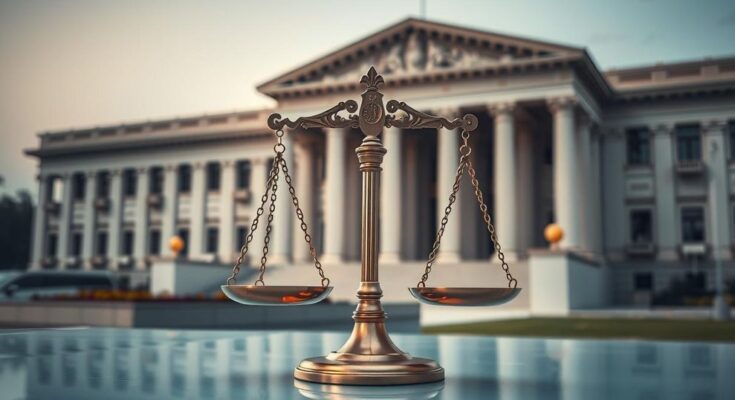In Dhaka, Human Rights Watch (HRW), a prominent international human rights organisation, has urged Bangladesh’s interim government to uphold impartiality within its law enforcement framework. The call comes amidst political unrest and significant human rights violations reported by the United Nations, where law enforcement agencies were implicated in extrajudicial killings, torture, and mass arrests following the ousting of Prime Minister Sheikh Hasina’s government in August 2024.
A recent HRW statement referenced the UN report detailing grave abuses by various security divisions, including police and intelligence units, aiming to suppress protests against the former regime. The interim government led by Nobel laureate Muhammad Yunus has promised security reforms but has deployed security forces in a crackdown dubbed “Operation Devil Hunt,” resulting in the arrest of nearly 2,000 individuals, chiefly supporters of Hasina’s overthrown Awami League.
Meenakshi Ganguly, HRW’s Deputy Director for Asia, noted Bangladesh’s heightened political polarisation post-Awami League’s longstanding control. She emphasised that the interim government must learn from historical errors and guarantee a fair rule of law. The UN report underscored the urgent need for political and economic reforms to achieve national healing and justice, as the violence that erupted earlier in 2024 highlighted severe issues requiring immediate attention.
The turmoil began when Hasina attempted to reach her supporters via an online platform while exiled in India, triggering a widespread student-led uprising. Protestors retaliated fervently, targeting properties tied to Hasina’s family, including demolishing her father’s memorial home, which symbolised Bangladesh’s fight for independence. As tensions escalated, Operation Devil Hunt was activated to quell violence precipitated by clashes between Awami League loyalists and student protestors.
The new interim government has shifted blame towards Hasina, accusing her of instigating unrest and seeking her extradition to face justice. Simultaneously, Yunus has called for calm and underscored the necessity of upholding the rule of law, differentiating the evolving Bangladesh from the authoritarian past.
HRW reiterated the importance of recognising the right to peaceful assembly, crucial for a democratic society. They posited that law enforcement should focus on facilitating peaceful protests, utilising nonviolent tactics prior to any forceful measures, consistent with international standards. The ongoing transitional government faces a pivotal role in not just restoring order but also in forming a resolution aimed at securing technical assistance and investigation into past abuses.
Ganguly stated, “Bangladeshis are angry over the repression by the Hasina administration and they deserve justice and accountability, but it has to be a rights-respecting manner.” Furthermore, she cautioned that labelling opponents as ‘devils’ could dangerously exacerbate abuses by security forces that historically lack accountability, prompting a delicate balance to be struck in pursuit of justice within a rights-respecting framework.
Human Rights Watch has called on Bangladesh’s interim government to ensure impartial law enforcement amidst serious human rights violations following political unrest. The UN report highlights extrajudicial killings and mass arrests during the crackdown on protests after the ousting of Prime Minister Sheikh Hasina. HRW urges that the interim government uphold the right to peaceful protest while avoiding past mistakes in governance.
In summary, Human Rights Watch’s plea for the interim government of Bangladesh to maintain impartiality in law enforcement underscores the critical juncture facing the nation. With a backdrop of severe human rights abuses and political tumult, it is imperative that the new leaders adopt a rights-respecting approach to governance. The message received is clear: accountability and justice must be prioritised to heal a fractured society.
Original Source: www.newindianexpress.com



